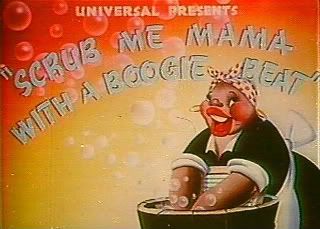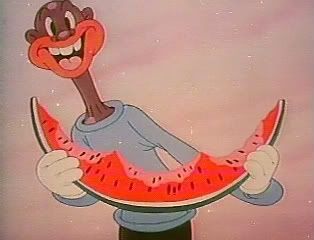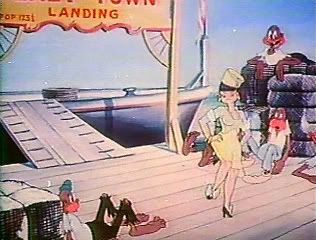
The short, released on March 28, 1941 by Universal Pictures features no director credit (Walter Lantz claims to have directed the cartoon himself), with a story by Ben Hardaway, animation by Alex Lovy and Frank Tipper, and voice work by Mel Blanc. The short is awash with blackface stereotypes of African American people and culture, and of life in the rural Southern United States.

The Scrub Me Mama short is today in the public domain. Clips from it are featured in Spike Lee's 2000 satirical film about African-American stereotypes, Bamboozled.
Despite the short's lighthearted tone and its unusual (for the time) featuring of a desirable young African American woman, people in modern-times would likely find the depiction of Lazytown's residents as unkempt, mush-mouthed layabouts to be deplorably irresponsible. The depiction of the jazz singer from Harlem represents the "exotic sex symbol" stereotype foisted upon young Black women in cinema at the time and which dated back to the mulatto wench characters of blackface minstrel shows a century earlier. The short, like the infamous Coal Black and de Sebben Dwarfs, does indeed derive almost all of its humor from minstrel show stereotypes of African Americans. Characters who appear in Lazytown include mammies, an old pappy, pickaninnies, dandies, and slave-like Jim Crows. Thus, few people have actually ever seen the short, and its presence in the modern American consciousness is virtually nonexistent.


In Leonard Maltin's Of Mice and Magic, Walter Lantz, discussing TV censorship, was quoted as saying: "The first thing that happened was the elimination of all my films that contained Negro characters; there were eight such pictures. But we never offended or degraded the colored race and they were all top musical cartoons, too."

No comments:
Post a Comment